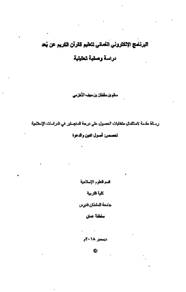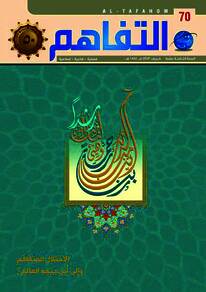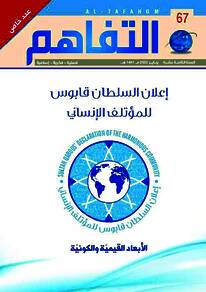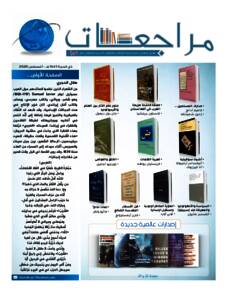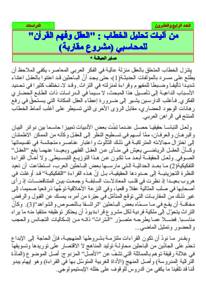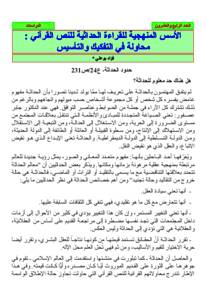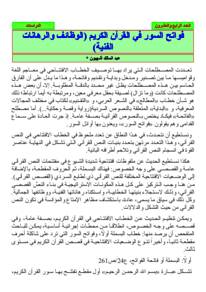Document
البرنامج الإلكتروني العماني لتعليم القرآن الكريم عن بعد : دراسة وصفية تحليلية
Publisher
جامعة السلطان قابوس
Gregorian
2018
Language
Arabic
Subject
English abstract
This study aimed to investigate the effectiveness of the Omani distance learning program to teach the Holy Qur'an (DLPTHQ) and identify its technical and scientific advantages, disadvantages and obstacles to its use from the point of view of the beneficiaries (administrators, teachers, students) and the proposed solutions. The study used both analytical and descriptive approaches. It analyzed the technological efforts made to serve the Holy Qur'an in the Sultanate of Oman. In addition to identifying the regulatory framework for (DLPTHQ), its development, its administrators and beneficiaries as well as the programs it offers, its strengths and the results of its implementation. The study sample was selected using purposive sampling to be representative of the study community of administrators, teachers and students. A survey questionnaire was the first study tool, designed and measured to ensure its validity and reliability. It consisted of three themes: the technical components of the program, its educational components and obstacles of use. The interview was the second study tool and held with one of the officials at the Omani Ministry of Awqaf and Religious Affairs. The research consisted of three chapters. The first defines the Holy Quran and meaning of its teaching and institutions; and examples of technological efforts of its education in the Sultanate of Oman. The second describes the (DLPTHQ). The third analyses technically and scientifically the (DLPTHQ), obstacles to its use, and development proposals. The study findings revealed the models of technological efforts in serving the teaching of the Holy Qur'an in the Sultanate of Oman. It is attributed either to individuals such as the "Omani CD project", or to institutions such as the "Common Errors in the Recitation". There was an acceptance among the public and private audience of the recent implementation of (DLPTHQ). The findings also showed that all stakeholders perceived the program as effective with high satisfaction on most of the questionnaire's items. Findings showed that there was no statistically significant differences between the stakeholders' views in terms of gender (males/females) variable in any of the three themes items. The study concluded with a set of recommendations, the most important of which are: to promote the positives of the (DLPTHQ) highlighted by the study; and to develop it in the light of the improvements emerged from the study. Similar studies should be conducted on dimensions that were not addressed in this study on (DLPTHQ) at a distance such as the institutional and administrative dimensions of the program
Description
رسالة جامعية
Member of
Resource URL
Arabic abstract
هدفت هذه الدراسة إلى التحقق من فاعلية البرنامج الإلكتروني العماني لتعليم القرآن الكريم عن بعد والتعرف على إيجابيات البرنامج الإلكتروني لتعليم القرآن الكريم عن بعد الفنية والعلمية وسلبياته ومعوقات استخدامه من وجهة نظر المستفيدين (الإداريين، المعلمين، الطلبة والحلول المقترحة. واستخدمت الدراسة المنهجين الوصفي والتحليلي، حيث عرضت وحللت واقع الجهود التقنية المبذولة في خدمة القرآن الكريم بسلطنة عمان. إضافة إلى تحديد الإطار التنظيمي للبرنامج الإلكتروني لتعليم القرآن الكريم عن بعد، ونشأته والقائمين عليه، والمستفيدين منه، والبرامج التي يقدمها، ومميزاته ونتائج تنفيذه. وكان اختيار عينة الدراسة قصديا لتكون ممثلة المجتمع الدراسة من الإداريين والمعلمين والطلبة. وصممت أداة الدراسة الأولى وهي استبانة مسحية قيس صدقها وثباتها، وتكونت من ثلاثة محاور، هي: المكونات الفنية والتقنية للبرنامج، المكونات التربوية والتعليمية للبرنامج ومعوقات استخدام البرنامج. بينما كانت المقابلة أداة ثانية للدراسة، أجريت مع أحد المسؤولين في وزارة الأوقاف والشؤون الدينية بسلطنة عمان. وتكون البحث من ثلاثة فصول: الأول في التعريف بالقرآن الكريم وتحديد المقصود بتعليمه ومؤسساته ونماذج من الجهود التقنية المبذولة في خدمة تعليمه بسلطنة عمان، والثاني في وصف البرنامج الإلكتروني العماني لتعليم القرآن الكريم عن بعد، والثالث في تحليل البرنامج الإلكتروني العماني لتعليم القرآن الكريم عن بعد فنيا وعلميا، ومعوقات استخدامه، ومقترحات تطويرية له كشفت نتائج الدراسة عن نماذج من الجهود التقنية المبذولة في خدمة تعليم القرآن الكريم بسلطنة عمان، منها ما يعزى إلى الأفراد كمشروع القرص العماني الناطق، ومنها ما يعزى إلى المؤسسات كبرمجية من الأخطاء الشائعة في التلاوة". ووجود قبول للبرنامج الإلكتروني لتعليم القرآن الكريم عن بعد بين العامة والخاصة مع حداثة تنفيذه. كما أظهرت نتائجها وجود رضى عال بين المستفيدين من البرنامج عن معظم عبارات الاستبانة. وتبين عدم وجود فروق ذات دلالة إحصائية بين وجهات نظر المستفيدين من حيث متغير النوع الذكور والإناث في أي من محاور الاستبانة وانتهت الدراسة إلى مجموعة من التوصيات أهمها: التوصية بتعزيز إيجابيات البرنامج التي أبرزتها الدراسة، وتطوير البرنامج في ضوء التحسينات والمقترحات التطويرية التي خرجت بها الدراسة. والقيام بدراسات مماثلة تتناول الأبعاد التي لم تتطرق لها هذه الدراسة في البرنامج الإلكتروني لتعليم القرآن الكريم عن بعد کالبعد المؤسسي والبعد الإداري للبرنامج.
Category
Theses and Dissertations

